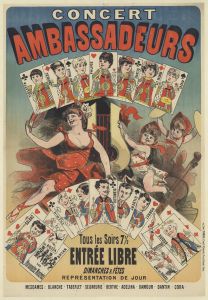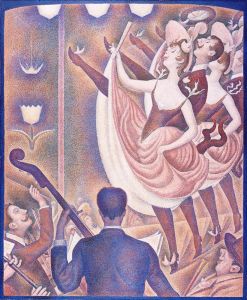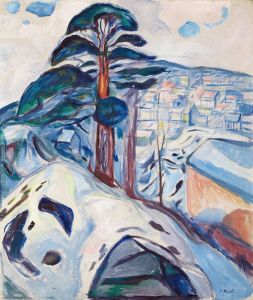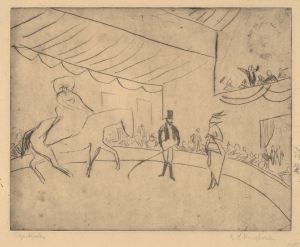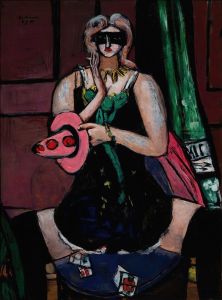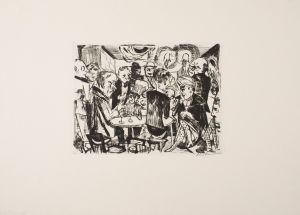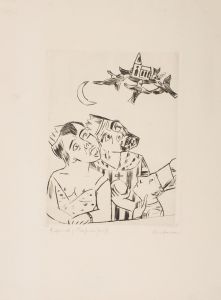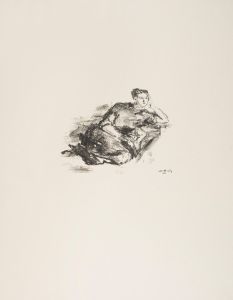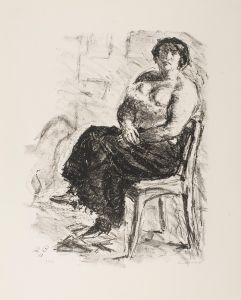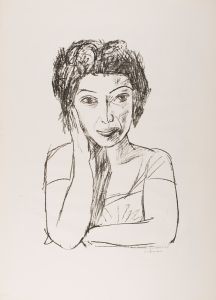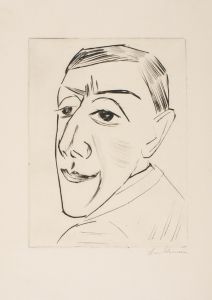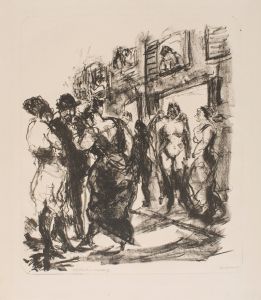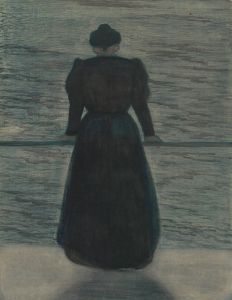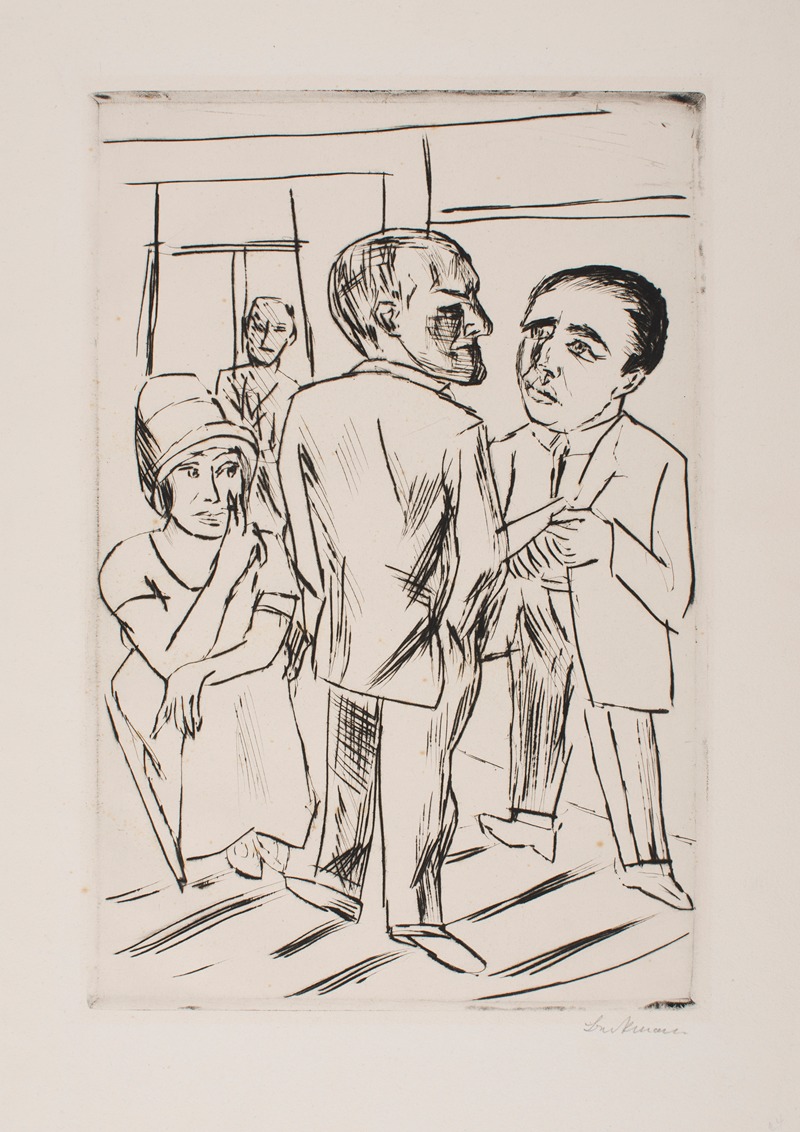
At the Hotel
A hand-painted replica of Max Beckmann’s masterpiece At the Hotel, meticulously crafted by professional artists to capture the true essence of the original. Each piece is created with museum-quality canvas and rare mineral pigments, carefully painted by experienced artists with delicate brushstrokes and rich, layered colors to perfectly recreate the texture of the original artwork. Unlike machine-printed reproductions, this hand-painted version brings the painting to life, infused with the artist’s emotions and skill in every stroke. Whether for personal collection or home decoration, it instantly elevates the artistic atmosphere of any space.
Max Beckmann's painting "At the Hotel" is a significant work by the German painter, known for his contributions to the Expressionist movement and his distinctive style that often combined elements of realism with a more abstract, symbolic approach. Beckmann, who lived from 1884 to 1950, was a prominent figure in early 20th-century art, and his works often reflect the tumultuous socio-political landscape of his time, as well as his personal experiences and philosophical reflections.
"At the Hotel" was created during a period when Beckmann was exploring themes of human existence, identity, and the complexities of modern life. His works from this era often depict scenes of urban life, filled with a sense of tension and psychological depth. Beckmann's style is characterized by bold lines, dramatic contrasts, and a vivid color palette, which he used to convey the emotional intensity of his subjects.
The painting "At the Hotel" exemplifies Beckmann's interest in the human condition and his ability to capture the essence of his subjects with a keen psychological insight. The setting of a hotel is significant, as it represents a transient space, a place where people from different walks of life intersect, often revealing the complexities and contradictions of human nature. Hotels, in Beckmann's work, can be seen as microcosms of society, where the public and private spheres collide.
In "At the Hotel," Beckmann employs his signature style to create a composition that is both dynamic and introspective. The figures in the painting are rendered with a sense of immediacy and presence, yet they also possess an enigmatic quality, inviting viewers to ponder their stories and relationships. Beckmann's use of space and perspective often creates a sense of confinement or claustrophobia, reflecting the psychological tension inherent in the scene.
Throughout his career, Beckmann was deeply influenced by the events of his time, including the two World Wars and the rise of totalitarian regimes in Europe. His art often serves as a commentary on the social and political upheavals of the 20th century, and "At the Hotel" can be seen as part of this broader narrative. The painting reflects Beckmann's ongoing exploration of themes such as alienation, identity, and the search for meaning in a rapidly changing world.
Beckmann's work, including "At the Hotel," has been widely exhibited and is held in numerous prestigious collections around the world. His paintings continue to be studied and appreciated for their artistic innovation and their profound engagement with the human experience. Beckmann's ability to blend realism with symbolic elements allows his work to transcend the specific historical context in which it was created, offering insights that remain relevant to contemporary audiences.
In summary, "At the Hotel" by Max Beckmann is a compelling example of the artist's unique approach to painting, characterized by its emotional depth, complex symbolism, and reflection on the human condition. Through his masterful use of composition, color, and form, Beckmann invites viewers to engage with the multifaceted nature of modern life, making his work a lasting contribution to the canon of 20th-century art.






